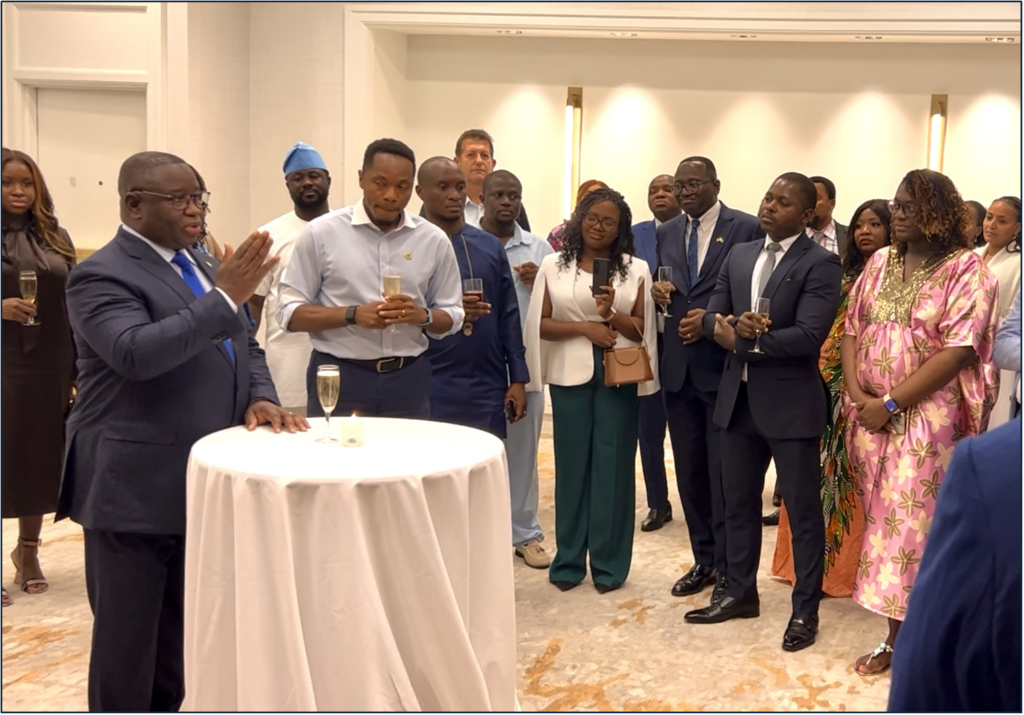In a compelling speech at a cocktail event at the Fairmont Hotel in Washington, D.C., His Excellency, Dr. Julius Maada Bio, urged Sierra Leone’s youths to separate politics from the critical process of national development. President Bio emphasized the importance of development for the future of young Sierra Leoneans, and the need for a collaborative effort to build a prosperous nation.
During his speech, President Bio said, “It is one thing to lead, but another to get followers to follow.”He expressed confidence in the abilities of the next generation, citing the successful lobbying and negotiations led by young advocate, Ndeye Koroma. “This is what we want to see from young people like her,” he said, emphasizing youth’s ability to drive positive change.
The President emphasized Sierra Leone’s abundant talent, much of which remains untapped. “I want Sierra Leoneans to understand that we can rebuild our country. It takes a good leader to recognize talent, bring people together, and motivate them to achieve extraordinary results,” he said. He cautioned that politics frequently stymies progress, saying, “Get rid of politics when it comes to national development because it can prevent a lot of good from happening.”
President Bio’s remarks followed the signing of the Millennium Challenge Corporation (MCC) $480 million Compact, which aims to improve Sierra Leone’s affordable energy access. This significant initiative, largely driven by young professionals and overseen by Vice President Dr. Mohamed Juldeh Jalloh, encompasses three major energy projects designed to meet the growing demands of households, businesses, and social institutions in the country.
The Transmission Backbone Project aims to expand the transmission network, thereby improving the coverage and dependability of energy services. This initiative is expected to facilitate energy trading with neighbouring West African countries and promote private-sector power generation, such as the Nant Energy project, supported by the US Development Finance Corporation.
Additionally, the Distribution and Access Project aims to improve grid reliability by reducing energy losses and improving access for specific communities, particularly schools, health facilities, businesses, and households. Finally, the Power Sector Reform Project will focus on making the energy sector more sustainable by lowering service costs, attracting private investment, and refining regulations.
President Bio reiterated his commitment to fostering a collaborative environment in which politics does not obstruct national development, urging young people to take the initiative in shaping a brighter future for Sierra Leone.
